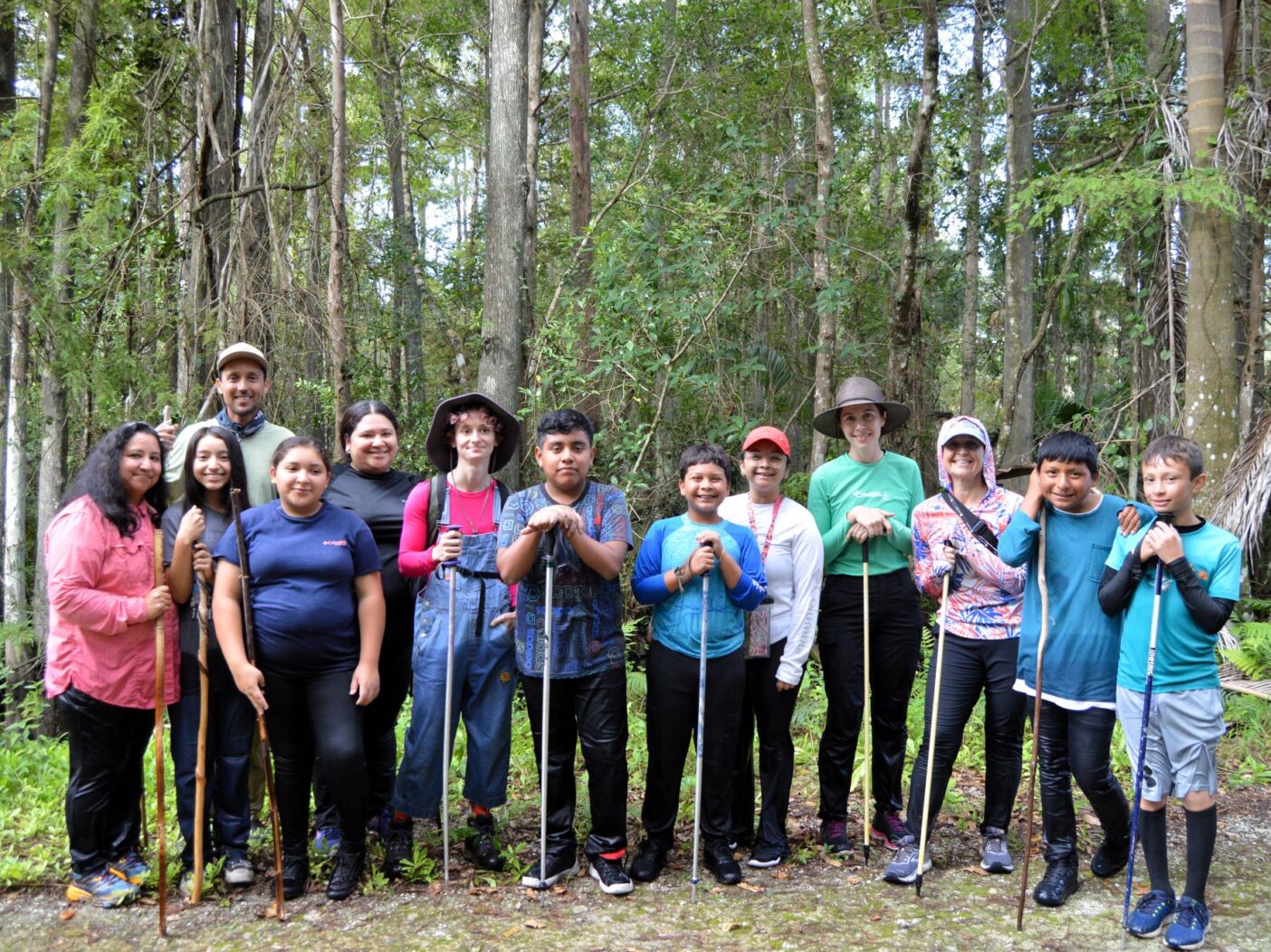
“It’s cold!”
The first of six middle school students eases into a slough at Fakahatchee Strand Preserve State Park. He has set the expectation for the rest, and they wince and hold their breaths as they wade into waist-deep water under a dense tree canopy.
They hadn’t anticipated any of this, the kids say later. They thought the water would be warm. A couple of them envisioned the Fakahatchee as an “open field,” likely imagining the Everglades. The 85,000-acre preserve is more of a jungle, the “Amazon of North America.”

The students attend RCMA Immokalee Community Academy, and they are part of a new Plants and Climate Change Education (PLACCE) program. Naples Botanical Garden is among six botanical gardens in the nation piloting the project in collaboration with the U.S. Botanic Garden. Each institution has created its own model; ours teaches students about climate change and the roles plants play in mitigating it through citizen science, experiential projects, and field trips like this one.
Garden educators hope such immersion into nature might inspire its protection.
“I just wanted to learn more about nature,” says one student, Jenado, about his reason for signing up for PLACCE and agreeing to this trip.
None of the students had ever been on a “swamp walk.”
“It was a little bit scary knowing there are a bunch of gators in the water,” admits his classmate, Eliana, once back on the bus. (The students received wilderness safety training prior to the trip.)
The Garden staff sought to replace fear with wonder.
During the walk, Director of Natural Resources Eric Foht pauses, lowers his voice, and confides that he’s about to share one of the swamp’s botanical wonders.

“It’s a ghost orchid,” he says, gesturing to a dormant plant, mere roots affixed to a tree and almost impossible to see. Another naturalist had pointed it out to Eric during a previous excursion. “It’s like secret knowledge passed down.”
He points out the giant stump of an old cypress tree and tells them about the logging fervor of the 1900s when lumberjacks felled Fakahatchee’s ancient trees one after another. The remaining cypress are younger and slimmer than the giants that once reigned.
“If we protect Fakahatchee, maybe we’ll see very old cypress again,” Eric says.
Halfway through the trek, Vice President of Education & Interpretation Britt Patterson-Weber asks the group about their experience so far.
“Fun!” a few offer.
This is what she hoped to hear.
“To protect nature, you have to have a relationship with it first. This is the first step in building a relationship to the ecosystem,” she says. “Every sense is engaged out there. I think that’s one of the things that makes it so memorable.”

About the Author
Jennifer Reed is the Garden’s Editorial Director and a longtime Southwest Florida journalist.

